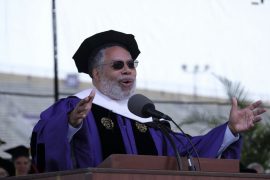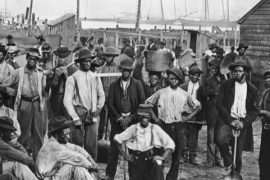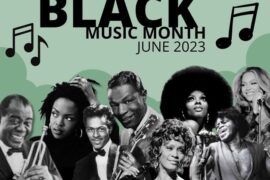Pierre Clark is the Editor of The Black Star Project Newsletter, a task he recently undertook after the passing of the organization’s iconic founder Phillip Jackson about a year ago around this time.
Pierre grew up on the South Side of Chicago on 35th Street in Bronzeville – sometimes called the “low end” – and went to Holy Angels Grammar School, St. Ignatius College Prep, Harvard University, and The University of Chicago.
He started out in the visual arts and photography/graphics fields (self-taught) as a freelancer for local newspapers, then transitioned into computer technology consulting, non-profit community development, community technology access work, and then real estate development consulting.
He’s been mostly a serial entrepreneur and consultant since 1983, starting about two dozen non-profit and for-profit enterprises over the years, including three magazines and three community newspapers.
He wrote a column on self-employment and entrepreneurship between 1993 and 1998 that appeared in Afrique Newsmagazine, Streetwise, and the Chicago Defender and which reached over two million readers through distribution by the National Newspaper Publishers Association.
Pierre currently works as a real estate project development consultant, graphics branding consultant, grantwriter to small non-profit and emerging for-profit businesses, and with individual non-profit organizations like The Black Star Project on a consultancy basis.
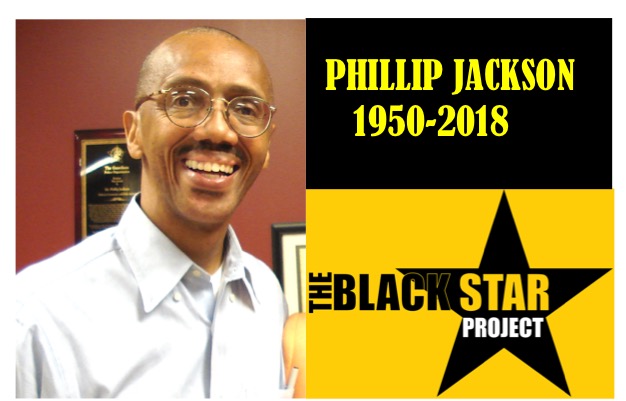
N’DIGO: Talk about The Black Star Project, please, its history, purpose, etc.
Pierre Clark: The Black Star Project was started in 1996 by Phillip Jackson after a long career in government and business. Through his work with the Chicago Public Schools as Chief Operating Officer, with the Boys and Girls Club, and with the Chicago Housing Authority, I believe Phillip became frustrated with what he saw happening with Black youth and families in our communities and with how the educational system was dealing with our youth.
So Phillip established The Black Star Project to address those challenges and built The Black Star Project into an iconic national organization that launched many iconic initiatives, including the Million Father March, Daddy Daughter Dance, Saturday University, Chicago’s Next Black CEO, a national/international radio show, and The Black Star Project Newsletter.
Phillip and The Black Star Project became symbols of educational empowerment and advocacy for Black children. But the original purpose of The Black Star Project as listed in its charter was economic emancipation. That is reflected in the name The Black Star Project, which of course refers to the Black Star Shipping Line, which was created as a tool of economic emancipation by the original Black economic emancipator Marcus Garvey.
The founder, Phillip Jackson, what kind of guy was he?
Though slight in build, Phillip Jackson had a warrior’s spirit and attitude. He grew up in the Chicago housing projects and attended 11 different schools, then rose to become an honors college graduate and successful corporate executive. He was a trained martial artist and teacher.
But his real claim to fame was his challenging intellect, which he used to quickly get to the heart of situations and build coalitions that supported and championed educational initiatives for Black youth and Black economic empowerment. He understood how to mobilize formerly unmobilized people.
In his corporate career, Phillip had excelled at whatever job or assignment he was given and brought that same drive to his work in founding and operating The Black Star Project. Like many driven leaders and founders, he had a short mental window between thought and action and could quickly see issues and solutions others could not and act on them.
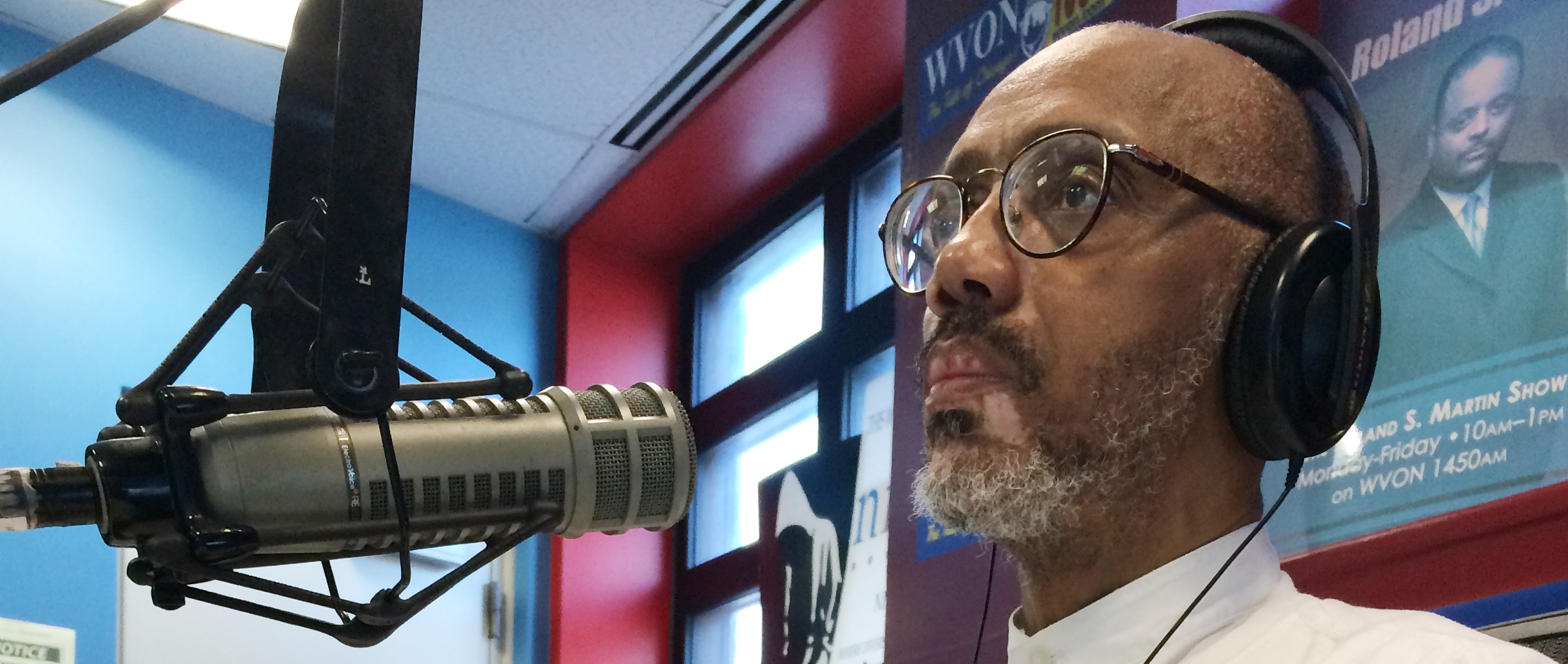
In his work, when he saw barriers to the success of Black youth and leaders, he challenged people and institutions on many fronts and more often than not he fomented great changes and massive reactions that grew into initiatives of significance.
For example, he saw an issue with getting children to come to school and stay in school, so he mobilized fathers to bring their children to school on the first day and that simple act grew into a national initiative spanning hundreds of cities and involving tens of thousands of fathers escorting their children to school, many for the first time.
Phillip then devised programs to keep fathers engaged with their children beyond the first day – initiatives like the Saturday University to provide after school instruction and the Daddy Daughter Dance to increase opportunities for fathers and their children to bond with each other. For these initiatives and others, he was recognized nationally by the White House and internationally as a celebrated Champion For Change.
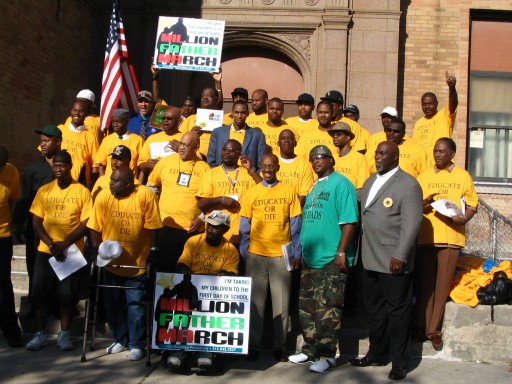
How long have you been affiliated with Black Star and how did that affiliation come about?
Through my work in the non-profit community development space, I encountered Phil, as did many others. We worked together in collaboration with the Monroe Foundation, an organization started by Otis Monroe that supports emerging non-profits in our communities with coaching and funding opportunities.
I also later discovered that my sister Deborah Berry was a key person working with the Deborahs, one of Phillip’s projects, which specifically engages Black women in community and educational issues.
When Phillip passed last year, we discussed among ourselves how to support The Black Star Project in its time of transition, and I started stopping by the office to help. Gloria Smith, Phillip’s sister who is now the executive director, asked me to help keep the newsletter going. I work with the newsletter and do other tasks within the organization.
What’s happened at Black Star in the past year? Did it ever get to the point of shutting down without Phillip?
The Black Star Project’s board and staff have been reviewing its programmatic activities – at one time, the organization had created and was operating more than a dozen initiatives – to determine which programs are priority to the organization’s continuing mission.
The organization engaged Cheryl Heads, a well-known non-profit consultant, to initiate and coordinate a formal strategic planning process. That process is continuing. And although the organization did cut back on some programs, at no time was the organization ever in question of shutting down, which is a strong tribute to the foundation Phillip laid, the leadership of his sister Gloria Smith as Executive Director, and the hard work of the board and our entire network of volunteer supporters.
What are Black Stars’ priorities and programs moving into the future?
The original focus of The Black Star Project was economic empowerment of Black people. Along the way, Phillip spotted a real problem with the education of Black youth, so he identified that gap and coined the phrase “Educate Or Die” to focus the organization’s activities on educational advocacy.
In the last years of his life, Phillip determined that it was paramount for Black people to work intentionally for their economic empowerment – the lack of which he had understood all along was the key impediment to the overall empowerment of Black people – and so he began to shift The Black Star Project’s activities back to the original organizing mission.
It continues to operate the Saturday University as an educational initiative, but in its transition period and strategic planning period is focusing on developing and establishing more programs focused on economic empowerment, such as its Chicago’s Next Black CEO program for youth.
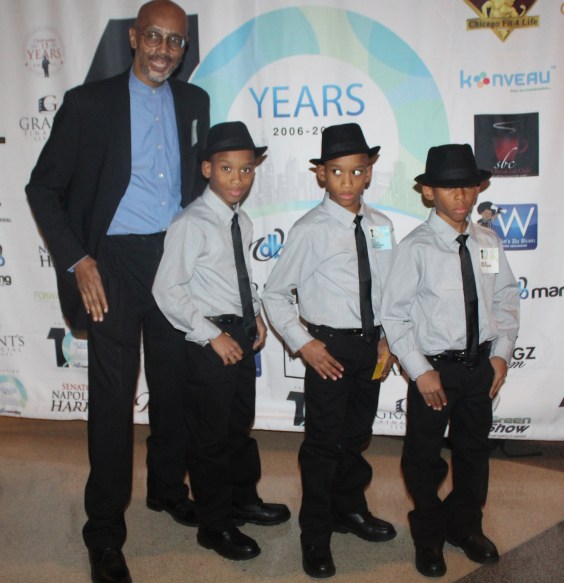
Talk about the newsletter and what you’re trying to do with it.
The newsletter has 43,000 registered subscribers, along with 29,000 likes on the FB Page, and is a very important outreach vehicle for the organization with a strong national and international following.
I started working with the newsletter at Gloria Smith’s request in early spring of this year. I was creating and editing articles and content. One day she decided to list me on the masthead as Editor.
In the first issues I worked on, I tried to find information and write articles that continued in the vein that Phillip Jackson had set – that is, in spotlighting local and national challenges to the education of Black youth and local and national programs launched by The Black Star Project to address those challenges, and as a bully pulpit for Phillip Jackson’s organizational advocacy.
Gloria also encourages the use of the newsletter to shine a spotlight on local and national community events and activities. I believe that the newsletter represents a severely underutilized and untapped advocacy and development resource as a more powerful voice for economic empowerment locally, nationally and internationally.
And so, over the next year, I want to increase the engagement of the subscriber base with the newsletter by polling the readership on information and articles they would like to see and at least double the number of registered subscribers.
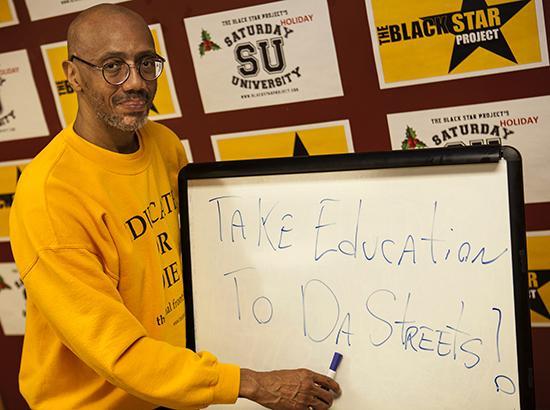
What else are you involved with, Pierre, outside of Black Star?
I am currently working as a development consultant on many real estate and technology development projects in the City of Chicago and elsewhere. Some readers may know about my work on the development and deployment of a wifi broadband network in Chicago’s Woodlawn community. That work continues in partnership with the Bronzeville Community Development Partnership, Chicago Digital Access Alliance Inc., Opportunity Communities Inc., and Connected Neighborhoods LLC.
I am involved in projects that are creating residential and commercial real estate developments ranging from single-family homes to community centers. I do some freelance photography and writing. I am proud of the stories I wrote on Phillip Jackson, Toni Preckwinkle, Lori Lightfoot, and my lifelong childhood friend Greg Hinton, that were published in Yvette Moyo’s South Shore Current Magazine. And I continue to do grantswriting and branding-graphics design for a number of non-profits throughout the city.
What kind of guy are you? What are your passions and interests?
I enjoy seeing people and institutions in our communities become empowered and win. Winning is when people and organizations that have been economically marginalized historically become empowered and self-sufficient. I like sharing knowledge to help those organizations and individuals make that economic empowerment happen.
I love photography and writing; I am a creative at heart. I like sports, bid whist, stepping, great music, and I am a fan of Tupac Shakur, who for me is the only rapper we’ll be talking about 100 years from now. I am a Star Wars and Star Trek fan and my favorite movies are old westerns – The Magnificent Seven and Gunfight at the OK Corral.
I have two fantasies that I am going to realize: one is to turn two screenplays I have written into feature films, and the other is to start a family-owned catering service named after my mother and sister, who were both great cooks.
How can the general public get the newsletter and otherwise help out The Black Star Project?
The Black Star Project is a national iconic organization that deserves support. Phillip Jackson’s legacy is strong and we need the financial support of all the thousands of people who love The Black Star Project and the principles Phillip Jackson and the Black Star Project stand for.
So people should call The Black Star Project at 773/285-9600 to volunteer. To subscribe to the newsletter, send your e-mail address to communityinfo@blackstaproject.org. Click on the donation link within the newsletter to donate money.
Anything you wish to add?
Yes. Phillip Jackson and The Black Star Project are very lucky to have his sister Gloria Jackson Smith as the executive director continuing his legacy. Gloria was an original founding board member and was personally brought back by Phillip Jackson to run the organization.
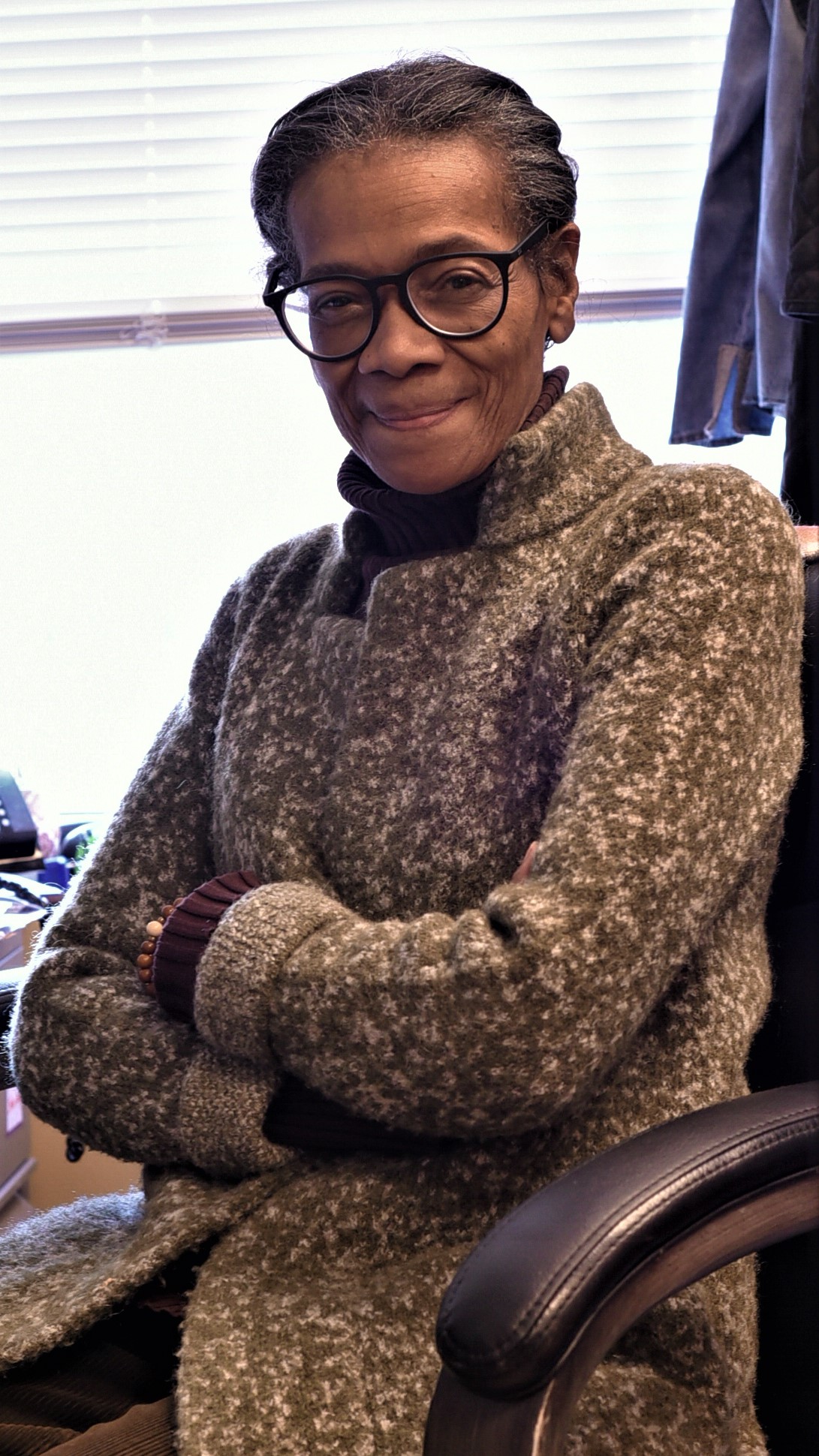
Gloria is disciplined, committed, organized, yet operates with a light touch and servant mentality that is unique in my experience. Her style puts people at ease and encourages them to be involved with The Black Star Project and help to keep it going.
She runs two non-profit organizations, both started by her family, which makes her work with The Black Star Project all the more amazing. So the organization for the last year has been in good hands and the future with her at the helm is a bright one. Please continue to support her and The Black Star Project and all of us.



